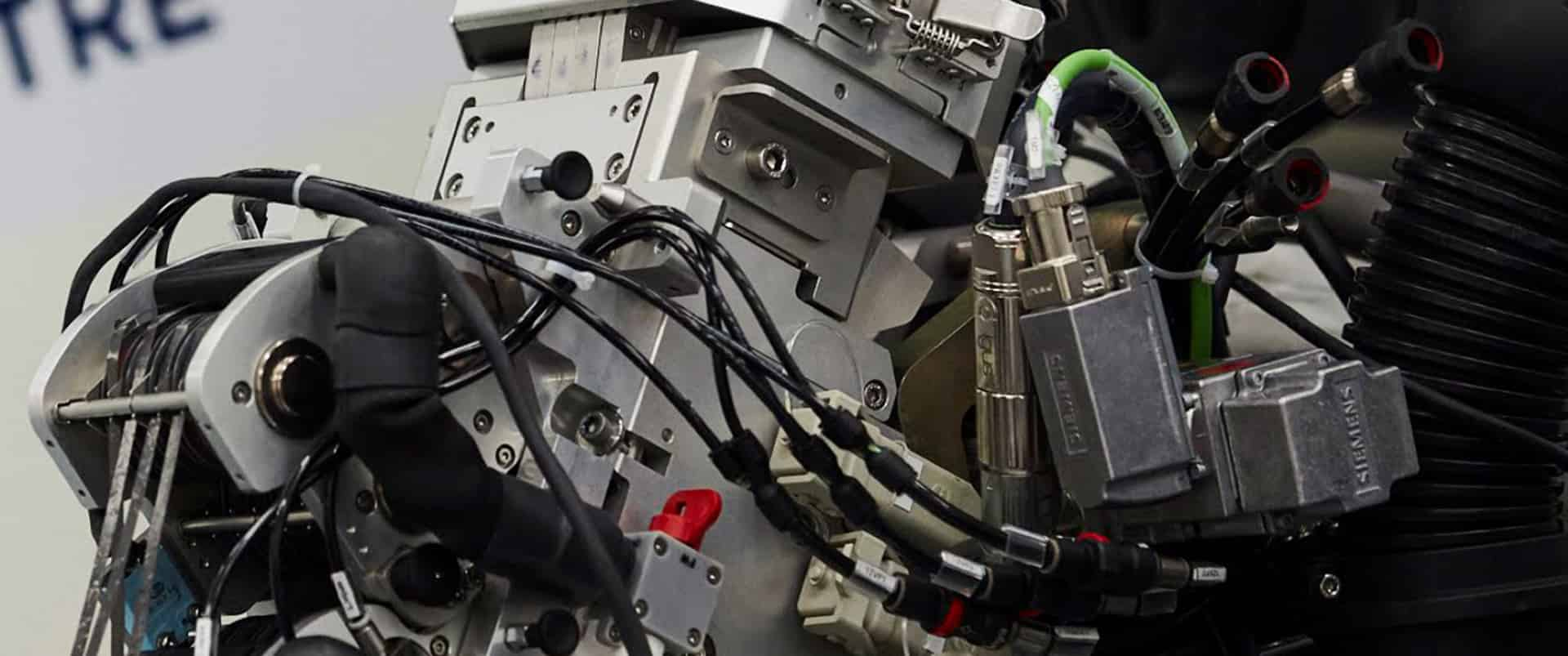21 October 2020
- 5G-ENCODE switches on the first phase of its network at the National Composites Centre.
- This will test existing technologies and provide a baseline against which the 5G network capabilities will be compared.
- The project will establish and test 5G use cases to make the benefits of 5G a reality for UK manufacturers.
Today, 5G-ENCODE, a pioneering project that aims to make the benefits of 5G a reality for UK manufacturers, announces the switch on of its Phase One Industrial Private 4G Network at the world leading National Composites Centre (NCC), to establish a baseline for existing technology. This comes ahead of its Phase Two Industrial Private 5G Network, which will go live in 2021.
The Phase One 4G network has been designed and developed by leading partners, Zeetta Networks and the University of Bristol’s Smart Internet Lab, and installed at the National Composites Centre. It will be used to establish a baseline for existing cellular technologies, against which results from the private 5G network, which will be installed in Phase Two of the project, can be benchmarked. The goal is to prove the value of 5G for use case performance and user experience and demonstrate the extent to which businesses will get a real return on investment from deploying private cellular networks within manufacturing.
5G-ENCODE is part of the Department for Digital, Culture, Media and Sport’s (DCMS) 5G Testbeds and Trials Programme and is one of the UK government’s biggest investments in 5G for manufacturing to date.
New technologies, particularly 5G, hold the key to unlocking significant benefits for manufacturers, including streamlining operations and increasing productivity. The project has been set up to establish clear business cases and value propositions for the application of 5G technology in manufacturing. The cellular network will be used to explore new business models and 5G technologies, including network slicing and splicing, within an industrial environment. Specifically, activity will focus on three areas:
- Augmented Reality / Virtual Reality (AR/VR) to support design, manufacturing and training.
- Monitoring and tracking of time sensitive assets.
- Wireless real-time in-process monitoring and analytics.
In the Phase One 4G Network, the focus will be on testing the asset tracking and AR / VR use cases. Each use case will be tested and data gathered on network performance, user experience and business benefit realisation. This process will be repeated for the Phase Two 5G Network and the data between 4G and 5G will be compared and analysed.
Vassilis Seferidis, co-founder and CEO at Zeetta Networks says: “Zeetta Networks is proud to be the leading partner for the 5G-ENCODE project. The use cases being explored will be integral to accelerating Industry 4.0. Phase One is just the beginning, and we’re confident that this project will be key to revitalising the UK’s manufacturing industry and safeguarding it against the next global recession”.
Marc Funnell, Head of Digital, and Director of DETI, National Composites Centre, says: “As a world-class research centre, the NCC is delighted to be the industrial test bed for the 5G-ENCODE consortium of leading industrial innovators. Today’s announcement marks the start of this project delivering real-life impact through the development of specific use cases for the 5G-ENCODE and Digital Engineering Technology & Innovation (DETI). We look forward to testing and sharing the results”.
Xavier Priem, Senior Research Fellow at Smart Internet Lab says: “Smart Internet Lab is proud to support and provide expertise to the 5G-ENCODE consortium. We are delighted to be working alongside communities, telecom and Industry 4.0 experts in this project by providing knowledge on 4G & 5G technologies on the delivery of use cases. Our work will be fundamental in introducing new capabilities into Industry 4.0 processes and systems which will provide more flexibility.”


